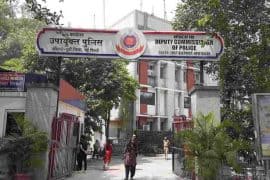From Dharavi to Oscars, read how Gully Boy’s nomination and how “apna time aa gaya”.
Zoya Akhtar’s Gully Boy, which created a stir and started a lyrical revolution for the underdogs of Indian music, has been selected as India’s official entry in the International Feature Film category at the Academy Awards, more popularly referred to as the Oscars. This film, featuring Ranveer Singh and Alia Bhatt, has been inspired by the lives of two Indian rappers, Divine and Naezy. The story of an aspiring rapper rising from the slums of Dharavi in Mumbai, fighting against the odds and obstacles was tied together with brilliant music and lyrics that touched upon the realities of life. Singh’s character, Murad, represents a myriad of ideas in the film. He is a young boy who finally finds meaning, and a voice in the songs that he writes. The struggles in his life take the centre stage in his songs, and authenticity becomes his uniqueness.
A dominant part of these struggles was the stark difference between the “haves” and “have-nots”. It draws out these visual contrasts when unaffluent Murad passes tall towers in his boss’ fancy car. Gully Boy also talks about the issues over authority between the protagonist and his father; it shows the plight of his mother when her husband remarries, and the persistent desire to be emancipated from the endless struggles that the “common man” faces. When this nomination was announced, it was met with appreciation, except several people also voiced out the other side to this decision. The Indian Film Federation unanimously selected Gully Boy over 27 other films, including Article 15, Super Deluxe, and Pahuna. Critics have argued that a Bollywood film of this scale and star-cast has certain factors playing in its favour, and while smaller films from other regions, languages, and demographics are also strong contenders in terms of the quality of cinema, they will not be given the recognition they deserve. Netizens are tweeting about other such critically acclaimed films such as Andhadhun, And the Oscar Goes To, Tumbbad, Uyare, among several others. Over the years, the films that have been nominated have been in the mainstream domain of the Hindi language. Till date, only two Malayalam films have been selected, along with one Telugu film, and no Kannada film has ever made it to the nominations. A common narrative that exists is that the Indian cinema is synonymous with Bollywood. There is a prevalent lack of awareness about other important industries, and those domains of Indian cinema are seen as the “others”. It is forgotten, almost always, that the Indian cinemascape goes beyond the dominance of Bollywood, to the diverse regions, languages, and identities that our land comprises of.
This film was lauded for its social and political undertones, except many also argue how it addressed these issues in a very ambiguous manner. The scene where Singh’s character goes around the city with Kalki Koechlin’s character and they spray-paint billboards all over the town and write “Feed Me” next to a model, “Brown and Beautiful” on a fairness cream advertisement are some of the ambiguities in the message it attempts to put forth. Even the ideas of majoritarianism, politics, and corruption are subtly hinted at. Many people also called out Bhatt’s character, Safeena, to be problematic after the Kabir Singh debates. For some, these mixed ideas of politics added to the layers in the film as they did not overpower the story, while leaving an impact. They further argue that this film opened doors to the discourse on these issues, except some others emphasise on how the film shrugs off its burdens by using subtlety as a tool. It is said that the jury which was responsible for the selection believed that a “feel-good factor” was essential for an Oscars nomination. While these are the many sides to this debate, apna time aa gaya (our time is here) and Gully Boy is now heading towards a much-awaited Oscars. It is a film which gave us a reality check, Siddhant Chaturvedi, catchy dialogues, and a seat at the Oscars.
Feature Image Credits: India Today
Shivani Dadhwal





Comments are closed.